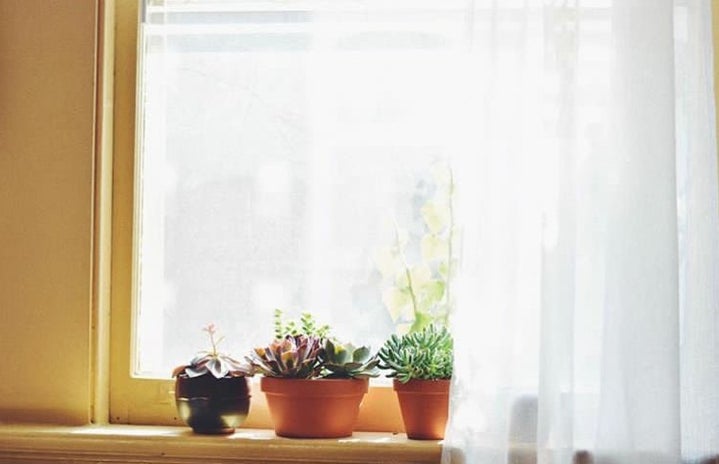In an era where we’re spending copious amounts of time indoors, regularly grabbing takeout in single-use containers and worrying about seemingly more significant issues than our impact on the environment, living Earth-consciously can easily become an afterthought. This problem increases two-fold for those of us residing in university housing where you’re operating under reduced space and, often, a reduced budget. As trivial or tedious as it might seem to some, the state of the environment needs to be one of everyone’s top priorities. Here are a few ways you can (and should) reduce your environmental footprint as a college student.
- Reduce Waste as Much as Possible When Eating Out
-
As a freshman living on campus at my university, I was required to purchase a meal plan. I can’t complain in terms of options, of which I have many, or food quality, but the amount of single-use plastics and containers I see being dished out with every meal makes my skin crawl. The easiest option here is, of course, to eat in, but when I’ve got a few hundred swipes to burn through before the end of the semester, that’s not the most productive option.
My biggest suggestion is to always have a set of reusable utensils on your person when going out to eat, taking plastic forks, knives and straws out of the equation.
You should also try your best to give “single-use” plastic containers a second life—instead of immediately ditching them in the recycling bin, take them home and wash them for later storage. Even if you only use them once more, that’s a reduction in your potential waste.
Finally, if you’re not already on this one, get on it—carry a refillable water bottle instead of getting a disposable cup or bottle of water (which each take 1,000 years to bio-degrade, and we don’t have that kind of time).
- Go Digital
-
The paper industry is one of the most detrimental to the environment. 42% of all harvested trees go to making paper, and the paper industry is number one for water use and pollution.
A potential solution for reducing your paper waste is to switch to an iPad or tablet for notetaking and reading textbooks. Although this option is not financially feasible for some, those who are able to make this investment should consider the amount of paper waste they can stop from going into landfills (the average American uses about 680 pounds of paper per year).
Apple offers a number of student discounts, which is how I was able to purchase an iPad for my classes. I have yet to use a single piece of paper this semester.
- Find Alternative Products
-
While such products as Tide Pods and pre-packaged foods provide the convenience college students need, opting for products with reduced packaging and more eco-friendly recipes will have an invaluable impact (rather, lack thereof) on the environment. Invest in, for example, a more organic detergent packaged in a recyclable bottle or a paper container of oats instead of a case of single-serve cups.
- Leave Your Car at Home
-
Particularly for a freshman like myself, my personal carbon footprint has never been lower without access to my car. Most everywhere I need to go is accessible on foot, so for those with the same privilege as me, leaving your car with your parents is a feasible option for reducing personal emissions.
(As an added bonus, my step count has never been higher!)
- Thrift (in Moderation)
-
Richmond, for example, has some amazing, locally-owned thrift spots to help you expand your wardrobe without unnecessary shipping or production emissions. The fashion industry is the second-largest polluter in the world, with microfiber pollution, desertification and rainforest destruction as only some of its effects. Giving garments a second life in your own closet reduces your potential waste.
Be wary, though, about the active gentrification of many thrift stores in America—independent stores will no longer be able to sell with low, accessible prices if individuals continue to grab up mass amounts of clothing and resell them at an intensely marked-up rate. So thrift, but only in moderation.
- Think Bigger
-
Personal responsibility when it comes to saving the Earth will only get us so far—change needs to happen on a higher level for any real environmental recovery to occur. Join university organizations and initiatives for supporting the environment. Lobby your local governments to embrace green legislation. Educate yourself and others to mobilize real change in your community.



